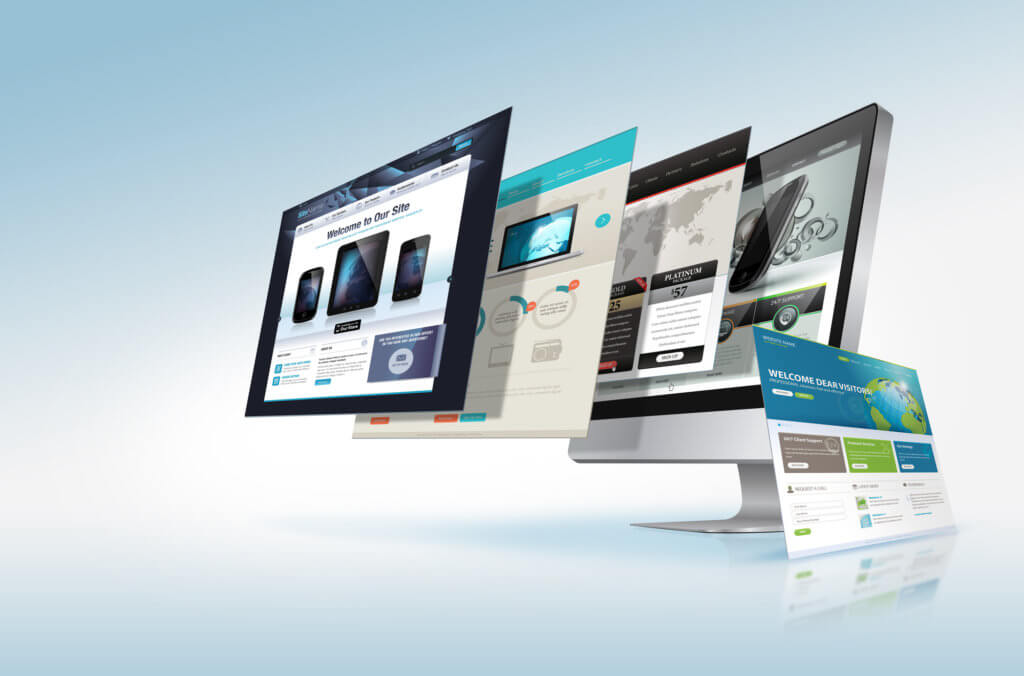Why does your Startup need a Website?
In todays digitally driven world, having a strong online presence is crucial for the success of any startup. A website serves as the virtual storefront of your business, acting as a central hub for information, communication, and transactions. In this blog post, well delve into the importance of having a website for your startup and why its essential for establishing credibility, reaching a wider audience, and driving business growth.
- Establishing Credibility: In the eyes of potential customers and investors, a professional-looking website signals that your startup is legitimate and trustworthy. It provides a platform to showcase your products or services, highlight your expertise, and share testimonials or case studies from satisfied clients.
- Reaching a Wider Audience: With a website, your startup isnt limited by geographic boundaries or operating hours. It allows you to reach potential customers across the globe, 24/7. Through search engine optimization (SEO) techniques, you can optimize your website to appear in relevant search results, increasing visibility and attracting organic traffic.
.jpg)
- Driving Business Growth: A well-designed website serves as a powerful marketing tool for your startup. It enables you to engage with your target audience through compelling content, interactive features, and clear calls-to-action. By leveraging analytics tools, you can track visitor behavior, identify areas for improvement, and refine your marketing strategies to drive conversions and revenue.
- Building Brand Awareness: Your website plays a crucial role in shaping the perception of your brand. It allows you to establish a consistent brand identity through visual elements, messaging, and tone of voice. By creating valuable content and engaging with your audience through blog posts, social media integration, and email newsletters, you can increase brand visibility and foster customer loyalty.
- Providing Customer Support: A website isnt just a marketing tool; its also a valuable resource for customer support and service. Through features such as FAQs, live chat, and contact forms, you can provide timely assistance to your customers, address their inquiries or concerns, and enhance their overall experience with your startup.
In conclusion, having a website is no longer optional for startups—its essential for survival and growth in todays competitive business landscape. By investing in a well-designed, user-friendly website, you can establish credibility, reach a wider audience, drive business growth, build brand awareness, and provide excellent customer support. So if you havent already, now is the time to prioritize your online presence and unlock the full potential of your startup.
Do you Have Question?
- What is website development, and why is it important for startups?
- Website development involves creating, designing, and maintaining websites. Its crucial for startups as it establishes their online presence, helps in customer acquisition, and enhances brand credibility.
- How long does it take to develop a website for a startup?
- The time taken depends on factors like website complexity, features, and client feedback. Generally, a basic website can take 4-6 weeks, while more complex ones may take several months.
- What are the key steps involved in the website development process?
- The steps include planning, design, development, content creation, testing, and deployment. Post-launch activities like maintenance and updates are also important.
- What factors should startups consider when choosing a website development platform?
- Factors include budget, scalability, ease of use, customization options, SEO-friendliness, and compatibility with future expansion plans.
- Can I update and maintain my startups website on my own, or do I need professional help?
- It depends on your technical expertise and the complexity of your website. Content management systems like WordPress make it easier for non-technical users to manage their websites.
- How much does it cost to develop a website for a startup?
- Costs vary based on factors like design complexity, functionality, and ongoing maintenance needs. Basic websites can cost a few hundred dollars, while more complex ones can cost thousands.
- What are the essential features that every startup website should have?
- Essential features include clear navigation, responsive design, contact information, call-to-action buttons, about us section, and social media integration.
- Is it necessary for my startup to have a mobile-responsive website?
- Yes, considering the increasing number of mobile users, having a mobile-responsive website is crucial for providing a seamless user experience across all devices.
- How can I ensure that my startups website is optimized for search engines (SEO)?
- By using relevant keywords, optimizing meta tags, creating quality content, improving website speed, and ensuring mobile-friendliness.
- What security measures should startups implement to protect their website and user data?
- Startups should use HTTPS, regularly update software, use strong passwords, implement firewalls, and conduct security audits to safeguard their website and user data.
- Can I integrate e-commerce functionality into my startups website to sell products or services online?
- Yes, various e-commerce platforms like WooCommerce, Shopify, and Magento allow startups to set up online stores and sell products or services.
- How can social media integration benefit my startups website?
- Social media integration can increase brand visibility, drive traffic to your website, improve engagement, and provide social proof.
- What role does content play in the success of a startup website, and how can I create engaging content?
- Content is crucial for informing, engaging, and converting visitors into customers. Start by understanding your audience, creating valuable content, and maintaining consistency.
- Are there any legal considerations that startups need to keep in mind when developing a website?
- Yes, startups should ensure compliance with data protection laws, copyright regulations, terms of service, and privacy policies.
- How can I track the performance of my startups website and analyze visitor behavior?
- Use tools like Google Analytics to monitor website traffic, user demographics, page views, bounce rates, and conversion metrics.
- What are the benefits of having a blog on my startups website, and how can I start one?
- A blog can help drive traffic, establish authority, and engage with your audience. Start by identifying topics, creating a content calendar, and promoting your blog posts.
- How can I optimize my startups website for speed and performance?
- Optimize images, enable caching, minify CSS and JavaScript files, use a content delivery network (CDN), and choose a reliable web hosting provider.
- Is it important for my startups website to be accessible to people with disabilities?
- Yes, ensuring accessibility not only provides equal access but also improves SEO, user experience, and brand reputation.
- Should my startup invest in professional website design, or can I use website builders?
- It depends on your budget, goals, and desired level of customization. While website builders offer convenience, professional design ensures uniqueness and functionality.
- How often should my startup update its website content, and why is it important?
- Regular updates keep your website fresh, improve SEO rankings, engage visitors, and reflect changes in your business, products, or services.
Categories: Digital Marketing & Social Media Marketing












Leave a comment